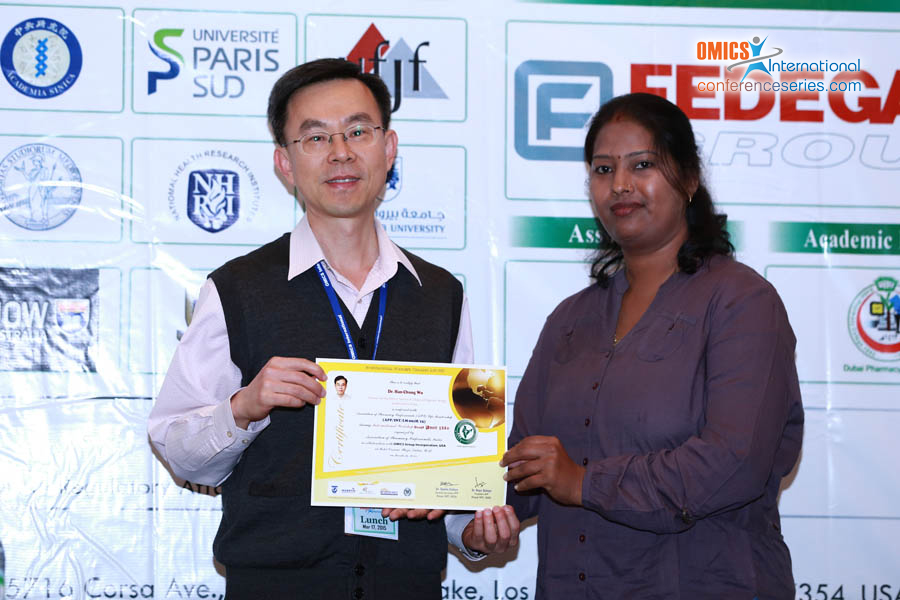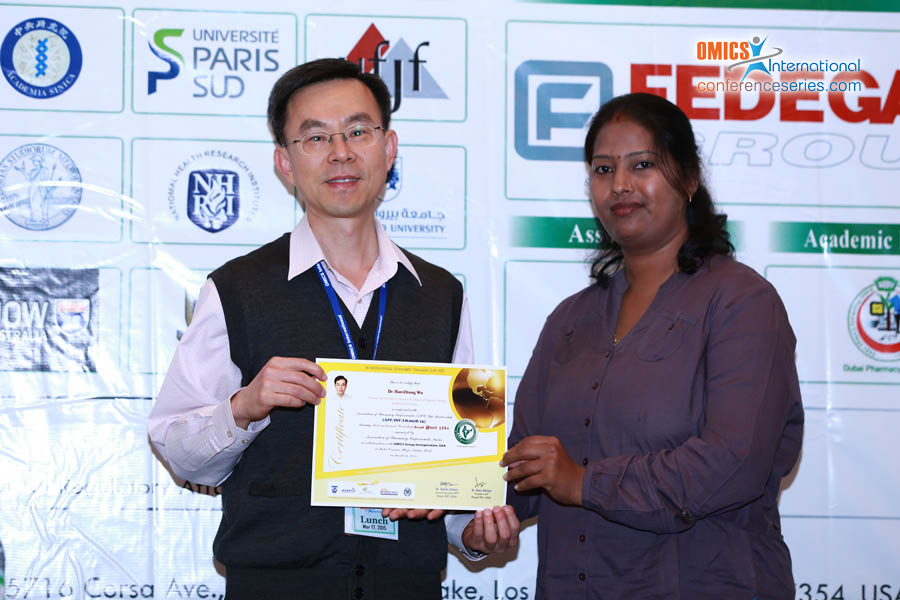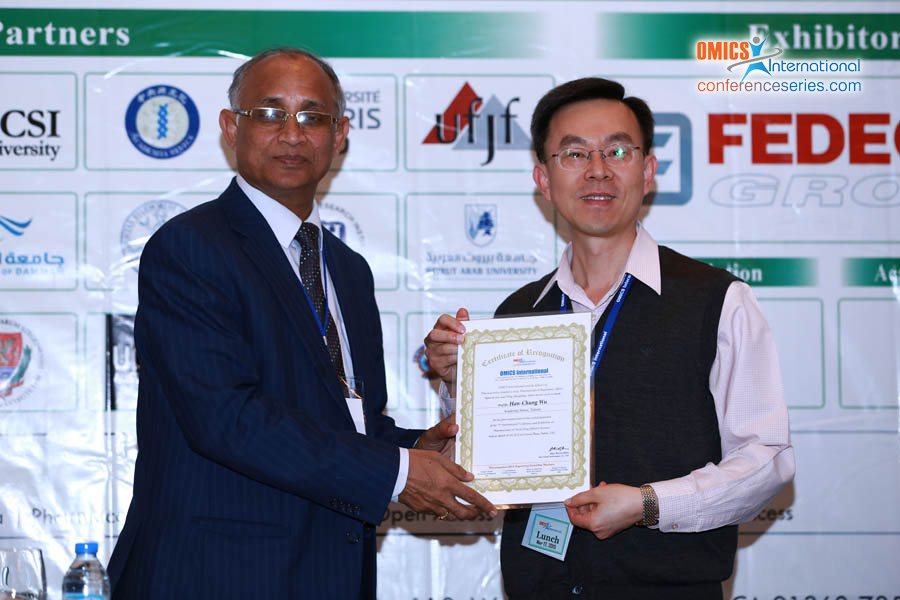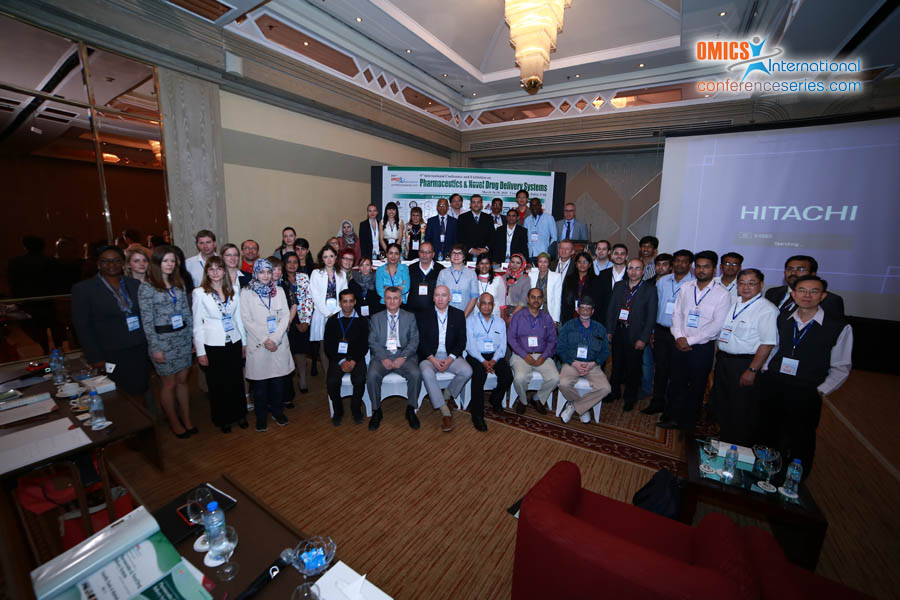
Han-Chung Wu
Academia Sinica, Taiwan
Title: Development of ligand-mediated drug delivery systems for cancer targeted imaging and therapy
Biography
Biography: Han-Chung Wu
Abstract
Lack of tumor specificity remains a major problem for chemotherapies in which side effects prevent the delivery of the drug dosages needed to eliminate the majority of cancer cells. Recently, we developed phage display methods to identify several novel peptides and human single chain variable fragment (scFv) antibodies that bind specifically to the plasma membrane of cancer cells. In an effort to develop targeting drug delivery systems, we used peptide-linked liposomes that carried doxorubicin to treat severe combined immunodeficiency (SCID) mice bearing human tumor xenografts. The peptide-functionalised liposomes were found to have an enhanced anti-tumor effect and reduced toxicity. Combination treatment of peptide-mediated targeting liposomes was able to completely eradicate tumors in three-sixth of the total number of tumor-bearing mice without any signs of recurrence. Targeting liposomes improved the therapeutic index by enhancing therapeutic efficacy, reducing side effects, and increasing the survival rate of tumor-bearing mice in orthotopic animal model. The tumor site fluorescent intensity in the mice treated with targeting peptide-linked quantum dots showed higher tumor uptake and increased tumor-normal tissue ratios. In addition, in vivo imaging by scFv-conjugated quantum dots clearly demonstrated the potential clinical use of the scFv in tumor targeting and imaging. Ligand-conjugated liposomes enhance pharmacokinetic and pharmacodynamic properties, improve efficacy and safety profiles, and allows for controlled biodistribution and drug release. Our study indicates that peptide- or scFv-mediated drug delivery systems show great promise for their applications in tumor-targeted drug delivery and imaging.




